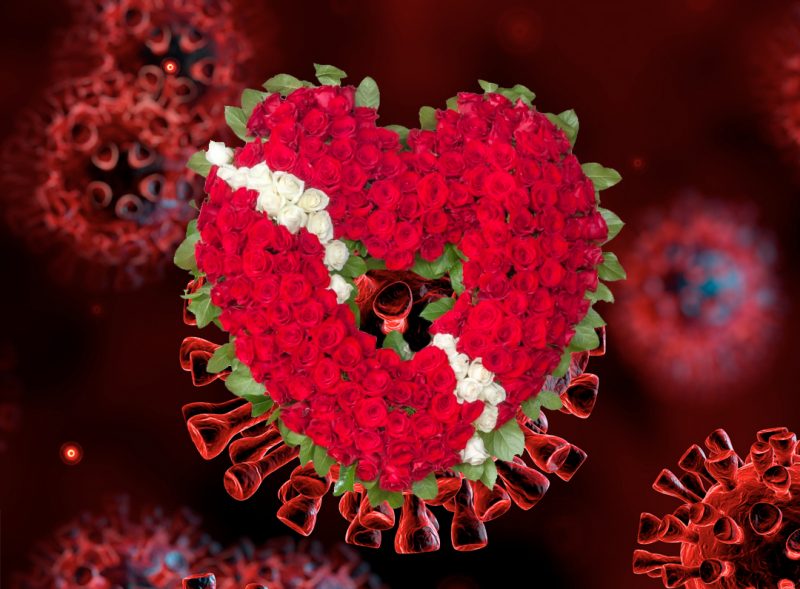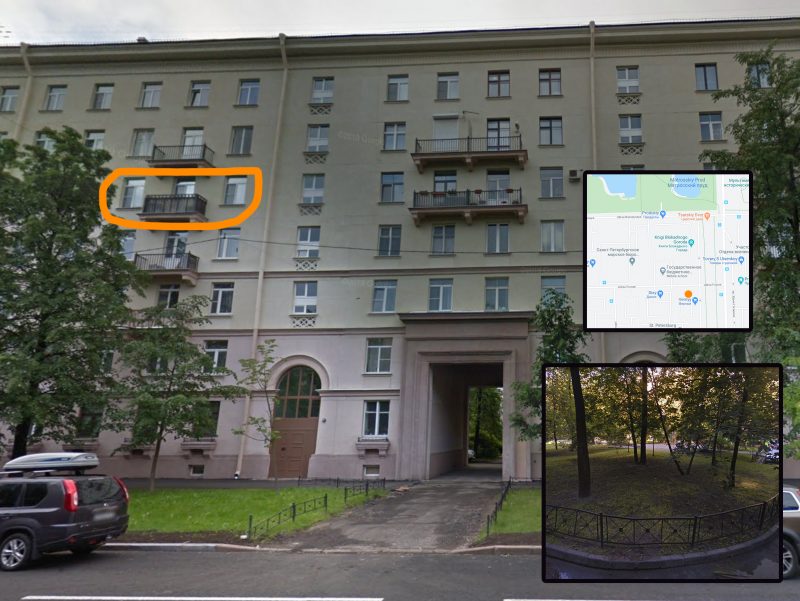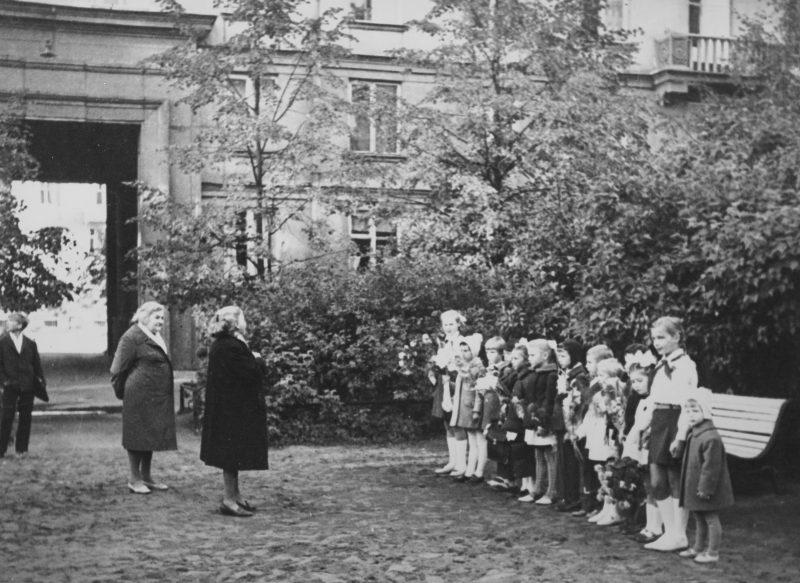
The oddness of invisible threat is very unsettling but oddly familiar. If we think back on our lives, we all had periods of time when we were forced into isolation. I can personally think of several. I will list them chronologically.
I was five years old when I noticed a bunch of kids playing together in our neighborhood “dvor” — a Russian word of a shared public space created by an apartment building complex that surrounded a little square of green space including a playground. I wasn’t a particularly social kid, but I liked playing jumping rope games and wanted IN. I begged my parents to let me go to a local Kindergarten. Such institutions were set up after WWII all over Russia. The idea was to help single women work and have kids — there were very few men left after the war, “the state was the father.” In my family, we had grandparents living with us, and so it wasn’t necessary to send me away. But I wanted it, got to go…for about two weeks. It was horrible! I had to drink castor oil by a tablespoon and other atrocities. I promptly accused my parents of not loving me and even quicker fell ill with measles. Then, happily, I got to stay home in quarantine forever. No more Kindergarten! No more mean teachers. No more castor oil. No more enforced naps. No more mean kids. Paradise of isolation!

Above is the apartment building I lived in. You can see the entrance to the dvor in the center. The image of a small park is what’s inside. The windows circled in orange were the kitchen, mine and my sister’s room with a balcony, and my parents’ room. My grandparents’ room looked out into the dvor. The little map insert shows where this house was located. You can see other apartment complexes built with a central area. Kids from the entire complex played inside.

A few years later, I had to start school, first grade. The photo above was taken in our dvor on September 1st, 1972. (I’m the one in a white hat with a big white puff on top.) I was a bit smarter then and not thrilled by the prospect. And, soon enough, older classmates figured out I was a Jew and promptly threw me down a flight of stairs. A broken nose and concussion (as well as politics) kept me home for months after that. Total bliss! (It did start me on an endless journey of sinus problems that finally resulted in two emergency surgeries to correct the mangled bones in my nose as an adult in the USA.) It’s all a matter of perspective, isn’t it?
I wrote before about my stay in a Russian children’s hospital (I and every other kid there were in isolation from our families). When I left, I was pretty deaf. (Interestingly enough I wasn’t deaf when I went into the hospital or during most of my stay there, but there was one visit to the “torture room” that resulted in silence.) I didn’t stay deaf — I got most of my hearing back by that winter, although I still have some diminished hearing. But that summer of silence was a strange feeling of confinement and isolation. While I was free to roam, I was alone in my head. It was kind of nice…
The next bout of quarantine was political. We got permission to leave the USSR in the fall of 1978 but didn’t actually leave Russia until March eleventh of 1979. But we knew we were leaving, going to school or outside was no longer a thing (talking to friends was not a thing either). But we had a large library of books and I didn’t get a chance to read them all yet. So that was my chance. I was left to my own devices — reading and playing with toys I’ve made myself — for almost half a year. Surprisingly, the only thing I minded was not being able to finish all of the books — we had to sell most of them and they were literally ripped from my dead tired fingers and sleepy eyes in the middle of one night.
There were multiple periods of social isolation to come. Fitting-in into a new life in a new country is tricky. There are very high cultural and linguistic barriers that prevent immigrants from feeling normal. (Someday, I might write about differences in feminine hygiene products between socialist and capitalist societies, but I digress…) Those barriers probably never truly go away, at least not for those who made the transition as adults. Children are more flexible…they say.
Then came the 1989 earthquake. I got to work from home — there was no getting there from here. But that was before the casual use of the Internet. We didn’t have Zoom or Skype or Facetime or email or easy digital filesharing… I sent physical computer disks to my boss; we held meetings over the phone. That lasted several months and then the world returned to more or less normal. And because the earthquake happened to only one small part of the country, the impact was limited. We had the full support of the rest of the country. We didn’t have to worry about running out of food or medicine or ICU beds. But we were stuck and isolated within smaller communities for a time.
My next “quarantine” moment came when I had to go on bed rest with my sons. The first pregnancy was difficult… The second was terrifying. I went into labor at 24.5 weeks. We were told our child was not viable at that gestational age. I was in and out of the hospital and mostly strapped into a chair in a kitchen with a belt measuring my contractions (and sending data directly to the nurse) and a drug drip system plugged into my thigh…watching the entire OJ Trial live. I have to say, I didn’t think he was guilty…then. But I was drugged and sick and he was so good in “The Naked Gun”… We made it to 36.5 weeks!
There were other times when I was stuck at home for various reasons. And I know many many other people who had gone through similar stuff. I might have been physically alone, but experiences were not insular. So even as we are alone in our quarantine, it helps that we are going through this together, as a nation. We are bonding! Well, some of us are bonding, others are doing everything in their power to keep power. But everything will change after this. One way or another our society, having gone through this shared experience with the rest of the world, will change. Times of flux hold the most potential for change of the status quo. It is very difficult to budge people when everything is normal. When we are comfortable or simply used to the way things are, we are not receptive to change — change is always scary. Change could be for the worse. But with everything up in the air, change is inevitable. We can make things better. We don’t need a revolution for that. We just need to be kind.
So here are little acts of kindness. Here’s a link to a free book giveaway: 
I’m giving away “Lizard Girl & Ghost” — a book about life and death during a pandemic and that raises questions about the existence of digital souls. I’m also making this ebook free for the next five days on Amazon. Get it however you like. Read. Get other books. Remember to leave reviews.
And one final thing. Early this morning, my uncle died (well, for you it was yesterday, for me it is today). He died without his family around him, not because people didn’t want to be there, but because no one could. He didn’t die of COVID-19, but it didn’t matter. The pandemic is affecting every aspect of our lives. I know of others who did lose their loved ones to COVID, but the result is the same — heartache. So little acts of kindness matter.
